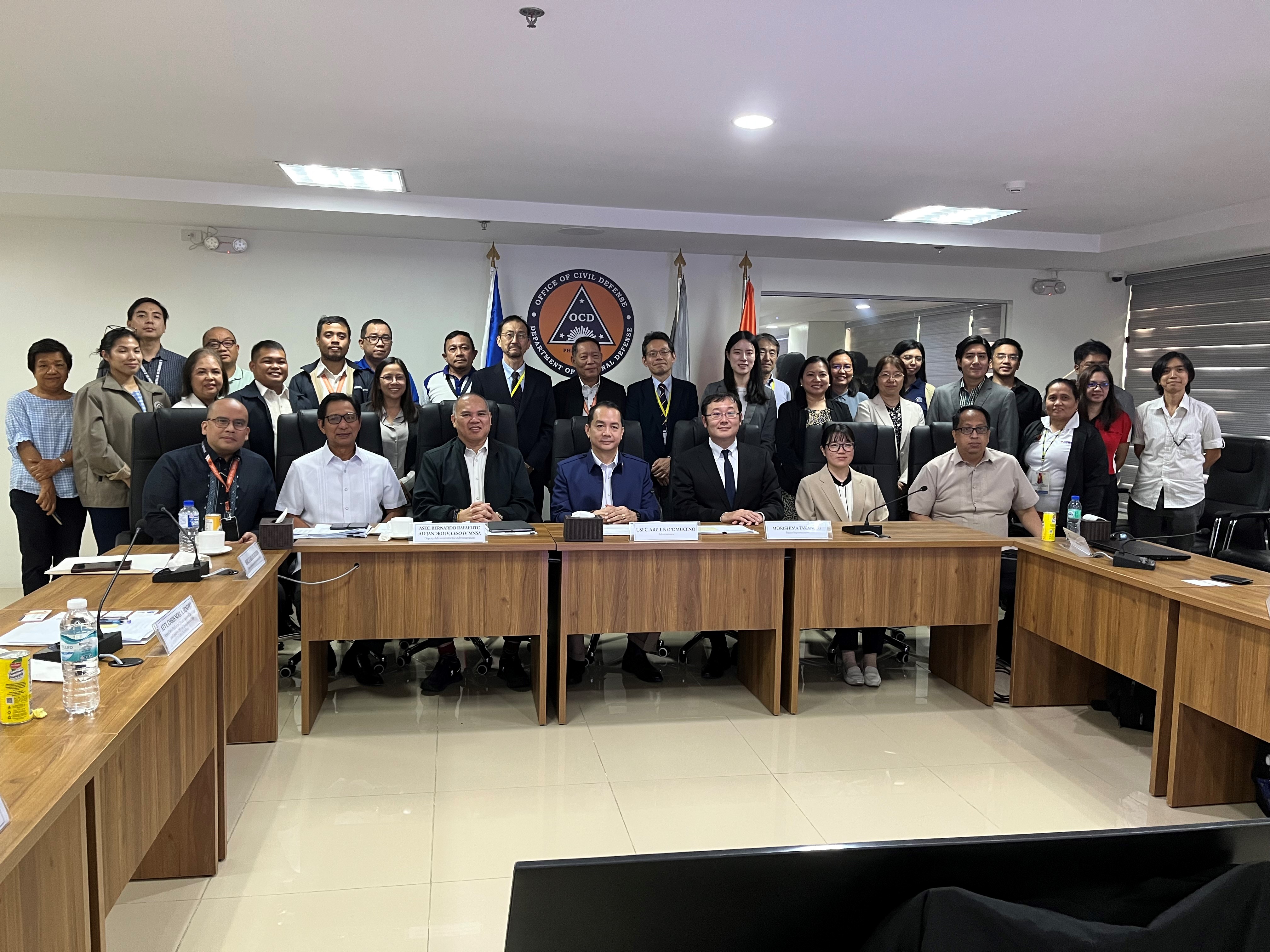JICA and OCD to empower local governments for effective disaster risk reduction
2025.04.15
The Japan International Cooperation Agency (JICA) and the Office of Civil Defense (OCD) mark another milestone with the conclusion of their project, “Disaster Risk Reduction and Management Capacity Enhancement Project (Phase II)” or “DRRM-CEP 2”, through the final Joint Coordination Committee (JCC) meeting held on April 15, 2025. Since its implementation in 2019, the project’s major outputs have been successfully completed before the closing date in May 2025.
DRRM-CEP 2 is a follow up to the first project concluded in 2015 that initially developed Regional and Local Disaster Risk Reduction Management Plans (R/LDRRMP) of select local governments aimed to strengthen their disaster preparedness and response capabilities.
Phase II advances the institutional and operational capacity of the OCD and LGUs in the implementation of the LDRRMPs. This includes the development of a planning, implementation, and monitoring system for LDRRMPs through outputs like Disaster Risk Assessment (DRA) Guidebook, Formulation Guidebook, Operational and Review Guideline, and RDRRMP Formulation Guidebook, among others. These will serve as their guide for hazard information and risk assessment, and disaster plans based on disaster risk information.
During the JCC meeting, JICA Philippines Senior Representative MORISHIMA Takanori highlights, “With these guidebooks in place, it is important to harmonize the plans and promote synergy among stakeholders.” The OCD will be distributing these guidebooks to LGUs to support their self-help efforts towards a better understanding of local risks, as well as formulation, reviewing, and updating of their LDRRMPs.
The project also supported capacity development activities of selected LGUs in Laguna, Bohol, Batangas, Camarines Sur and Davao through DRRM trainings and workshops.
“The project faced significant delay due to COVID-19 pandemic but despite that, we were able to manage to implement initial activities, thanks to everyone’s support and cooperation, all of the guidebooks and guidelines were approved before the project ends,” added Morishima.
The closing of Phase II signals a new momentum especially as local governments are further integrated into long-term disaster resilience efforts. Now more than ever are the impacts of climate change grow more unpredictable, thus the importance of building proactive DRRM systems has become urgent.
JICA continues to reaffirm its commitment to disaster resiliency in the Philippines, a focus that dates to the 1960s. Its Official Development Assistance (ODA) to the Philippines includes disaster management through both hard infrastructure such as dams, floodway, river revetment and retarding basins; and soft measures in the form of capacity development initiatives.

Project team from the OCD headed by Administrator Ariel Nepomuceno with JICA team led by Senior Representative MORISHIMA during the Final JCC.
scroll